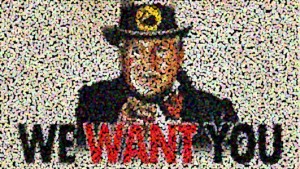 Leadership is not something that happens overnight. It takes time and practice to develop the skills needed to be successful.
Leadership is not something that happens overnight. It takes time and practice to develop the skills needed to be successful.
There are many skills that make someone a leader let alone a great leader. Inc. shares the top five skills every leader must have.
If you can’t focus you can’t get work done. We are inundated with information every day. There’s the urge to text, tweet, or check email and it is all very difficult to ignore. Great leaders know how to manage distractions and can focus on the important things that affect the bottom line of their businesses.
Great leaders question assumptions, claims, and viewpoints. They know when to make a decision and when to proceed with caution. They accept responsibility for their decisions, both good and bad, even if it means they go down with the ship.
Authentic leaders have integrity and lead their team with compassion. They truly care about their employees. They are honest and don’t sugarcoat the truth.
The Inc. article says, “Communication has always been the means by which great leaders achieve great things. But these days, communication occurs in sound bites, status updates, text messages, and tweets of 140 characters or less.”
Great leaders don’t just bark orders. They listen to their team, customers, peers, and competitors. They know it is the best way to understand a situation so they can make the best decision.
The most successful leaders get their team to work towards a common goal, satisfy their customers, and deliver on their promises.
Great leaders put others first and find ways to help people grow. To become a great leader, you need to develop the skills necessary to lead, motivate, and influence people in good and bad times.
What other traits do you look for in leaders?
 The most successful business people recognize that leadership ability is the sum of experience and perspective. So what sets successful leaders apart from the average?
The most successful business people recognize that leadership ability is the sum of experience and perspective. So what sets successful leaders apart from the average?
In a Forbes post from 2013, contributor and leadership advisor Mike Myatt outlines five transitional phases that all great leaders move through to go from good to great.
The best business leaders recognize the importance of common purpose and shared values to the success of their organizations. Purpose is a defining characteristic that shapes passion, and helps dictate a strong work ethic.
Myatt points out that those driven by profit may find themselves successful for a short time, but “great leaders make the transition from profit to purpose.”
He notes that a lesson many average business people miss is the role of profit in a company’s success. While all businesses exist to make money, great leaders recognize that purpose at the personal and organizational level is the key to prolonged success.
For Myatt, the role of a leader is inspiring change and helping others recognize value in themselves, and the organization.
“Average leaders spend time scaling processes, systems, and models — great leaders focus on scaling leadership.”
Being a great leader involves some level of introspection and humility, and recognizing that trust, loyalty, and respect from your employees are earned through the way that you lead.
“Great leaders are self aware, organizationally aware, contextually aware, and emotionally aware.”
They embrace an open leadership style focused on learning and listening from everyone in their organization, and aren’t threatened when their decisions and positions are challenged.
Leaders who are unwilling to change their minds when challenged by their employees won’t grow and develop as leaders.
Great innovators are continually looking for ways to simplify the way they do business, for the benefit of their customers and their employees.
Myatt argues that complexity in the organization stifles innovation and negatively impacts culture. Think about the way that your organization delivers value to clients, partners, and employees.
If a process can be streamlined for efficiency without sacrificing quality, simplify.
“Great leaders understand nothing is more personal than leadership, and they engage accordingly. The best leaders understand a failure to engage is a failure to lead,” says Myatt.
Businesses are human-powered enterprises, and truly effective and mature leaders demonstrate empathy and compassion at every turn. They listen carefully to those around them, coach employees through complex problems, and always look for opportunities to learn from their teams.
Performance is achieved by helping others become successful.
 CEOs, have you ever asked yourself, "Is improvement really necessary?"
CEOs, have you ever asked yourself, "Is improvement really necessary?"
You’ve become the leader, after all, and it seems only natural that you’ve achieved all you need to remain successful in your job.
This attitude is misguided and self-defeating, says Joel Trammell, a contributor to Forbes. “Continuous improvement is vital to performing well as a CEO,” he writes. “The best ones make time for it, because they see it as an investment in themselves and their company that will pay off in real dollars down the line.”
Trammel offers these tips for CEOs, to help with continuous performance improvement. (more…)
 CEOs, have you ever asked yourself, "Is improvement really necessary?"
CEOs, have you ever asked yourself, "Is improvement really necessary?"
You’ve become the leader, after all, and it seems only natural that you’ve achieved all you need to remain successful in your job.
This attitude is misguided and self-defeating, says Joel Trammell, a contributor to Forbes. “Continuous improvement is vital to performing well as a CEO,” he writes. “The best ones make time for it, because they see it as an investment in themselves and their company that will pay off in real dollars down the line.”
Trammel offers the following tips for CEOs, to help with continuous performance improvement. (more…)
